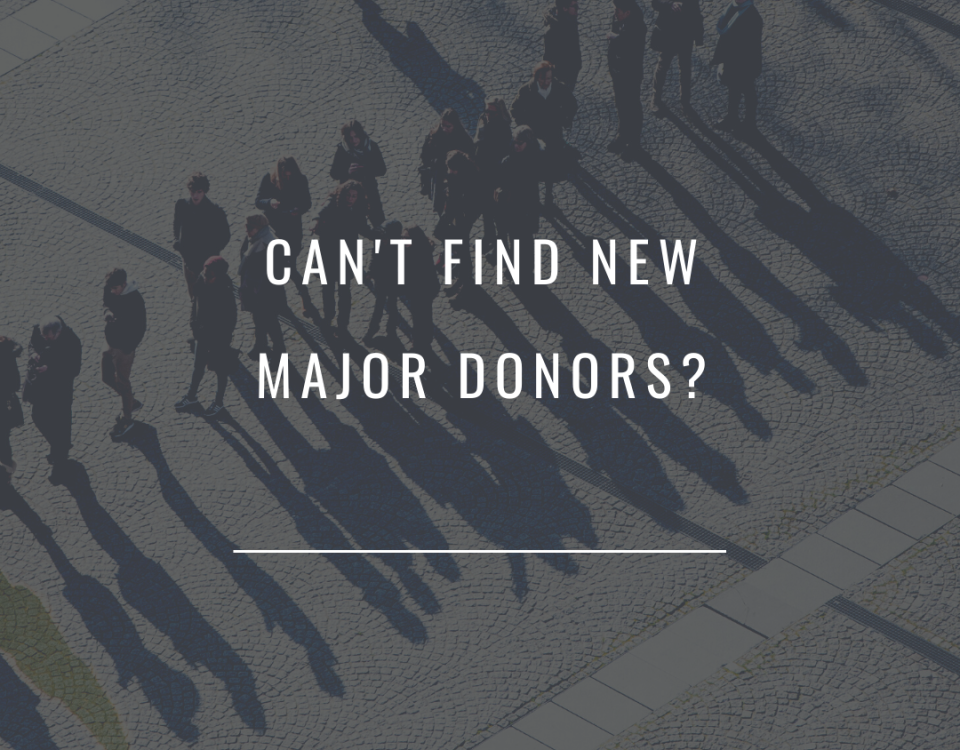Donor Privacy: Why it Matters for Nonprofits
November 17, 2021
The Truth About Donor-Advised Funds
December 6, 2021On January 6, 2021, our country experienced an armed insurrection at the U.S. Capitol. I’m sure many people feel the way I do. It was tragic. It was frustrating. Moreover, none of us thought we would see something like this in our lifetimes. A few days later, I received emails from the nonprofit sector. It mentioned Amy Sample Ward at NTEN calling for the removal of the president through the 25th amendment. Also, Carmen Rojas of the Marguerite Casey Foundation said, “the worst position for philanthropy to take is that of an impartial observer.” While that event was shocking to many, there’s a lot of social change, and it’s nonprofits and fundraising.
A day or so after the reporting and videos of white-majority mobs at the Capitol, social media and the news debated the double standard of law enforcement in the protests last summer for the Black Lives Matter movement. Whatever your view about that, I think it’s fair to say that America still has a race problem. But that’s not the end of it. We’re amid a pandemic, and medical professionals and the public don’t trust the new vaccines. Also, we have issues forcing social change concerning income inequality. And of course, we need to address gender equality and economic justice. In short, a lot is going on.
Our Collective Ability to Communicate Social Change
When I started as a nonprofit fundraiser, we got trained to “be like Switzerland.” In other words, whatever was going on socially or politically, our job was to focus on the nonprofit’s mission and remain neutral. However, that’s no longer the case. All you have to do is get into any social media group, and the push is to speak up. In fact, younger generations, in particular, are pushing for choosing a side. No, you don’t get to not pick a side. Personally, I’m not a big user of social media, but even as a casual user, I see the debates in groups. A lot of it is about not being an impartial observer by not saying anything.
As we know, social media and technology platforms such as Facebook, Twitter, and Google allow for immediate and instant global communication. While this is great in some respects, we also have a situation where Big Tech has little to no accountability. In short, we have the power for what you and I see concentrated in the hands of a handful of people. They don’t tell us how their algorithms work. Moreover, technology created a situation where your reality and my reality about social change are vastly different. All of it depends on the politics and ideas of our friends with whom we communicate. It also happens based on what we like and comments we make, as we inform algorithms and descend further into our silos.
Board Representation in Nonprofits
As a New Yorker, I could tell you that the arts are a big deal in New York City. For example, we have Broadway, Alvin Ailey, Lincoln Center, plenty of music clubs, Carnegie Hall, and many events for the performing arts. Again, social change and disruption are affecting everything. Recently, an article was published by the Theatre Communications Group. In it, it mentioned what’s wrong with many boards. For instance, people who serve on them usually have zero experience or knowledge about the mission and social area. Also, often, board members do not represent the communities they serve.
A fundraiser I know in New York used to manage a sizeable educational group for children. Every year, she tried to add people to the elite and wealthy board of directors representative of parents from the communities served. Unfortunately, each year, there was a reason or explanation about why this couldn’t happen. The reality is that in many large organizations, many board members are white and wealthy. In recent years, we have much more push back from younger generations and people working at nonprofits demanding more diverse representation.
What Does Social Disruption Mean for Fundraising?
Ultimately, donors help underwrite what they help write. I’ve been saying it for years. In other words, donors have to get involved to get motivated to give money. But, what does that mean at a time of immense social change? What does that mean when people do not trust wealth? Also, how will nonprofits move forward when wealthy donors receive the message, you don’t matter. For better or worse, some nonprofit leaders seek alternatives for fundraising, not including traditional major gift donors.
I don’t have all of the answers, but what I will say is that the nonprofit sector is undergoing massive disruption and change. As a fundraiser, I hear the concern from people who could underwrite entire programs becoming resistant to doing so. I worry for the smaller nonprofits, the vast majority of organizations, and the funding shift. In other words, I could see a scenario where wealthy donors say, well, if we’re not wanted, so we will not give to small nonprofits. All of those philanthropic dollars will move to traditional institutions, such as Carnegie Hall, Ivy League universities, and medical centers.
Before everyone retreats—social change must come with conversations. We created walls around ourselves, and that’s a problem. In short, we need to get diverse people who want the good in society into the same rooms—off social media—because that’s just an echo chamber. We have to listen to each other, debate respectfully, and reconsider how we move forward. Black and Latino communities have legitimate concerns. However, not all wealthy donors want to part of clubby boards and ignore the communities they serve. We need to create opportunities for discussions, face to face and off of social media. That’s how we’ll begin to understand each other.
© 2021 High Impact Nonprofit Advisors. All Rights Reserved.



1 Comment
[…] the demands of the digital era, social change, and increased competition from businesses and impact investment groups mean that if you want to […]